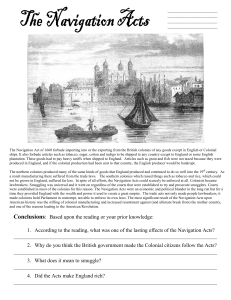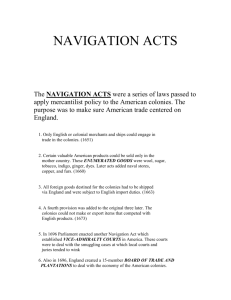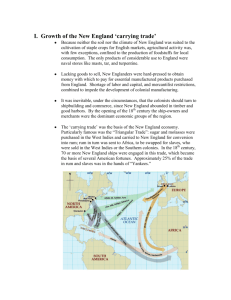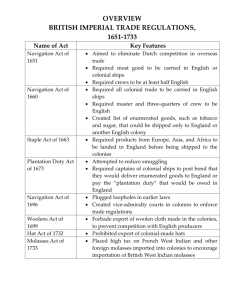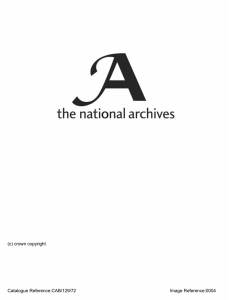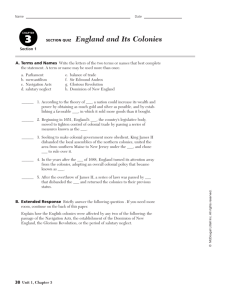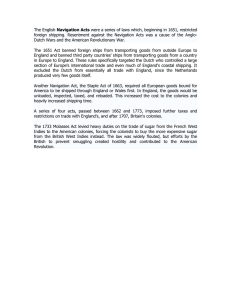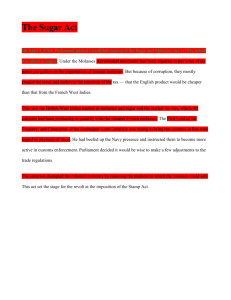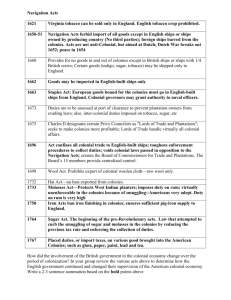Navigation Acts
advertisement
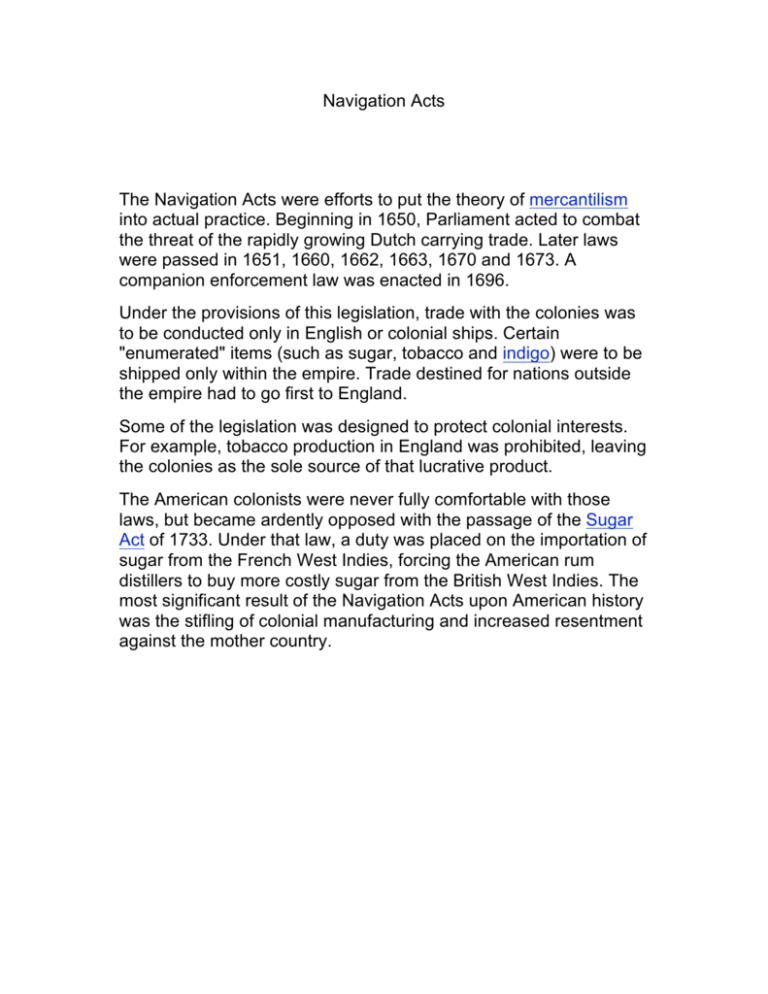
Navigation Acts The Navigation Acts were efforts to put the theory of mercantilism into actual practice. Beginning in 1650, Parliament acted to combat the threat of the rapidly growing Dutch carrying trade. Later laws were passed in 1651, 1660, 1662, 1663, 1670 and 1673. A companion enforcement law was enacted in 1696. Under the provisions of this legislation, trade with the colonies was to be conducted only in English or colonial ships. Certain "enumerated" items (such as sugar, tobacco and indigo) were to be shipped only within the empire. Trade destined for nations outside the empire had to go first to England. Some of the legislation was designed to protect colonial interests. For example, tobacco production in England was prohibited, leaving the colonies as the sole source of that lucrative product. The American colonists were never fully comfortable with those laws, but became ardently opposed with the passage of the Sugar Act of 1733. Under that law, a duty was placed on the importation of sugar from the French West Indies, forcing the American rum distillers to buy more costly sugar from the British West Indies. The most significant result of the Navigation Acts upon American history was the stifling of colonial manufacturing and increased resentment against the mother country.
